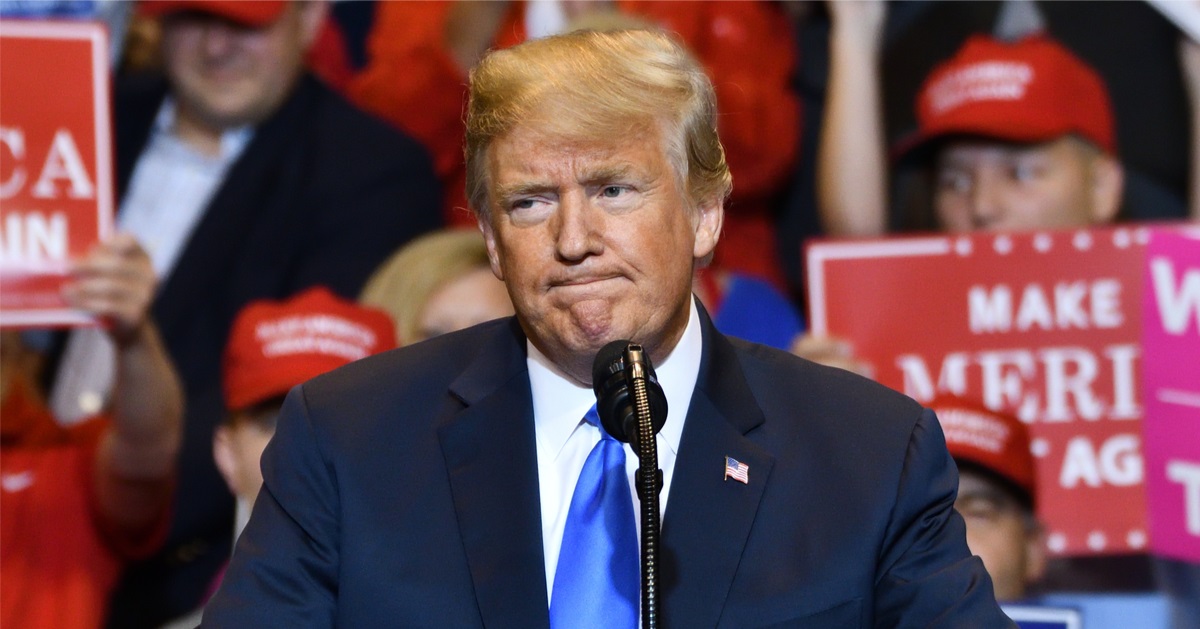Mental health experts offer ethically questionable diagnoses of Trump's cognitive state
There had been plenty of speculative discussion about President Joe Biden's increasingly apparent cognitive decline over the past couple of years, which likely played a role in the Democratic effort to oust and replace him as the Party's nominee with Vice President Kamala Harris in July.
With Biden now out of the race, attention has shifted to former President Donald Trump, and some media and medical industry figures on the left are pushing almost the exact same narrative and diagnosing him from afar with "cognitive decline," according to The Independent.
That is bad news for Trump, in that it could negatively impact his electability, but it also doesn't bode well for those mental health experts that have spoken out against him, who have veered dangerously close to violating the ethical standards of their profession against diagnosing an individual they haven't personally examined.
Mental health experts speak out against Trump
The Independent noted that several top mental health experts, and one former White House doctor, have expressed concerns about former President Trump's cognitive state based on their observations of his "rambling" and at times "incoherent" speech during campaign rallies and presidential debates.
One of those is Richard Friedman, a psychiatry professor at Weill Cornell Medical College, who recently published an op-ed in The Atlantic about how "alarmed" he was by Trump during the debate earlier this month and how the former president "displayed some striking, if familiar, patterns that are commonly seen among people in cognitive decline."
Another is clinical psychologist Dr. Ben Michaelis, who acknowledged that he hadn't personally examined Trump but nonetheless suggested he was "really not in a strong cognitive place" and could be exhibiting some of the signs of dementia.
Then there is Allen Frances, a professor and former dean of psychiatry at Duke School of Medicine who previously chastised his colleagues for diagnosing Trump from afar but now claims the former president "has deteriorated a great deal" and "seems pretty incoherent" since he left office.
Finally, there is Former White House physician Dr. Jeffrey Kuhlman, who also admitted that he's never examined Trump but still asserted that he could have dementia and urged him to undergo a thorough cognitive assessment exam while also suggesting there should be an upper age limit imposed on presidential candidates.
Professionals shouldn't diagnose public figures from afar
All of the speculative talk about the mental health status of former President Trump -- or President Biden, for that matter -- doesn't sit well with the Alzheimer's Society, which felt the need to remind every in July why they shouldn't attempt to diagnose them, or any other politician or public figure, from afar.
For starters, the diagnosis can often be wrong as it lacks pertinent context and background information or knowledge of other factors that could reasonably explain certain behaviors that aren't evident while making observations from a TV screen.
The Society also warned that doing so adds to the stigmatization of those who legitimately suffer from dementia and other mental health illnesses and, along those lines, often "normalizes unhelpful language" about such affilictions that aren't commonly used by mental health professionals.
Speaking of professionals, it is a violation of their profession's ethical standards, known as the Goldwater Rule, to publicly opine about the mental health condition of a politician or public figure if they have not first conducted an in-person medical assessment of the individual.
Same story, different election
Of course, none of this is new, as numerous mental health professionals who politically oppose the former Republican president have been offering up their diagnostic opinions about Trump since before he even first took office.
In that sense, this latest batch of supposed alarm at Trump's purported cognitive decline -- something they've been hollering about for years -- may have little to no actual impact on the 2024 race, as their negative outlook on Trump's mental health is already well known and accounted for in the minds of many voters.






